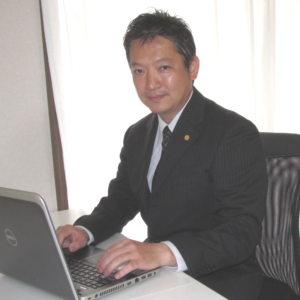Complete Guide to Applying for the Representative Work Visa: ‘Engineer/Specialist in Humanities/International Services’ Status of Residence!

- 1. What is the meaning of the lengthy “Technical, Humanities Knowledge, International Services" visa?
- 2. Requirements for the “Engineer, Humanities, and International Services" Visa
- 3. Proof and Documentation for the “Engineer, Humanities, and International Services" Visa
- 4. “Technical, Humanistic Knowledge, and International Services” Visa Application Documents
- 5. Documents for “Engineer/Specialist in Humanities/International Services" Visa Application
What is the meaning of the lengthy “Technical, Humanities Knowledge, International Services" visa?
Originally, “Technical," “Humanities Knowledge," and “International Services" were separate visas. They were later combined into “Humanities Knowledge and International Services," and eventually into a single visa category of “Technical, Humanities Knowledge, International Services."
The types of work allowed under this visa are legally described as follows:
Activities requiring technology or knowledge in fields such as natural sciences, engineering, or other disciplines, or in fields such as law, economics, sociology, or other humanities, based on a contract with public or private institutions in Japan, or activities requiring thinking or sensitivity based on foreign culture.
In simple terms, “Technical" refers to visas for engineers and technicians, “Humanities Knowledge" is for jobs like sales, marketing, or office work, and “International Services" covers roles like import/export, interpretation/translation, or design based on foreign perspectives.
The consolidation of these three categories was intended to address issues where job roles changed over time—such as a technician advancing to a management position or an interpreter taking on marketing tasks—leading to complications with visa changes or renewals.
However, when applying for this visa, you need to specify whether your job falls under “Technical," “Humanities Knowledge," or “International Services."
What does “based on a contract with public or private institutions" mean?
Such work must be conducted “based on a contract with public or private institutions in Japan." This includes public institutions such as national or local governments, independent administrative agencies, and public interest corporations, as well as private institutions like companies and NGOs.
Is it okay to contract with individual businesses?
In conclusion, there is no problem if employed by an individual business owner. However, since there may be a lack of objective documentation such as registration records, it is necessary to clearly explain that the business is being conducted properly and it is desirable to prepare financial statements similar to those required for companies.
Additionally, even with an individual business, it is necessary to have a secured place of business, such as an office or workspace, where the foreign national will be working.
Can you contract with a Japanese branch or subsidiary of a foreign corporation?
There is no issue if a foreign corporation’s subsidiary is legally registered in Japan. However, Japanese branches or offices that are not legally registered do not serve as the contracting entity under Japanese law.
In such cases, you will be working under a contract with the head office, and the work at the Japanese branch or office will be treated as a “contract with public or private institutions in Japan," making it eligible for the “Technical, Humanities Knowledge, International Services" visa.
Is it okay to be a freelancer?
The definition of “freelancer" can be unclear, but it generally refers to a situation where one is not employed but rather contracted under a commission or delegation agreement. The legal requirement is that work must be “based on a contract with public or private institutions," so it is not necessarily required to be an employment contract.
If the contract is a commission (or delegation) agreement but is effectively the same as an employment contract, it is usually acceptable.
On the other hand, for short-term commission (or delegation) agreements, you can only receive a residence period corresponding to the contract duration. To obtain a residence period of one year or more, a contract of at least six months is required.
Furthermore, a typical freelancer model, involving multiple small contracts (with small amounts and short durations) rotated among different companies or individuals, can be challenging.
If you are only able to secure small contracts from the start, there is a possibility of receiving only a short-term residence period due to concerns about continuity and stability (or it may not be approved at all).
For example, if you have a large contract (with a high amount and duration of six months or more) along with several smaller contracts that are continuous and repetitive, you might be considered more of a business owner than a freelancer, which could make you eligible for the “Business Management" visa rather than the “Technical, Humanities Knowledge, International Services" visa.
In this case, you need to meet the requirements for a “Business Manager" visa, such as securing capital and a business office.
Requirements for the “Engineer, Humanities, and International Services" Visa
Below, I will explain the requirements for “Engineer," “Humanities," and “International Services" separately, but a common requirement for all three is to receive “compensation equal to or greater than that received by a Japanese person engaged in the same work."
This means that foreign workers should not be hired with the expectation of lower labor costs.
Requirements for “Engineer" or “Humanities"
For jobs that fall under the “Engineer" or “Humanities" categories of the “Engineer, Humanities, and International Services" visa, you must meet one of the following requirements:
- Have graduated from a university with a major related to technology or knowledge in the fields of natural sciences or humanities, or have received equivalent education
- Have completed a specialized school in Japan with a major related to technology or knowledge in the fields of natural sciences or humanities
- Have 10 years of practical experience (including the period of study in university, technical colleges, high schools, or specialized schools related to the technology or knowledge)
- For “Engineer," hold a qualification or pass an exam related to information processing as specified by the Minister of Justice
Here, “university" includes universities, graduate schools, university colleges, junior colleges, and similar institutions. Sometimes it can be tricky to determine if an institution qualifies as a “university" depending on the country.
For IT-related engineers, it is acceptable to have specific qualifications or pass certain exams even without a university or specialized school degree or practical experience. This is defined by the IT Notification.
Requirements for “International Services"
For jobs that fall under the “International Services" category, you must meet all of the following requirements:
- Engage in work related to translation, interpretation, language instruction, public relations, advertising, international trade, fashion or interior design, product development, or similar duties
- Have 3 years of practical experience related to the work you intend to engage in. However, this requirement does not apply to those who have graduated from university and are engaged in interpretation, translation, or language instruction
What is meant by “work related to the work you intend to engage in"?
“Work related to the work you intend to engage in" means that similar work is acceptable, and it does not need to be a perfect match. For example, in trade-related jobs, it is fine if the products handled are different.
However, if someone with experience in international travel engages in trade work, even though it is related to overseas affairs, it will not be permitted if the nature of the work is fundamentally different (in the case of “International Services").
Broad Interpretation of Interpretation and Translation Work
Interpretation and translation work can be carried out with an “Engineer, Humanities, and International Services" visa if you have graduated from a university (or junior college). However, the scope of interpretation and translation has expanded beyond professional interpreters and translators.
Due to the increase in foreign tourists, jobs involving customer service to foreigners have become relatively easier to obtain a visa for. For example, front desk staff at hotels, clerks at duty-free stores, airport passenger services, and cabin crew can now apply under the category of interpretation and translation.
Proof and Documentation for the “Engineer, Humanities, and International Services" Visa
When applying for the “Engineer, Humanities, and International Services" visa, I will discuss the necessary documentation to prove that you meet the various requirements mentioned above.
Documents to Prove Academic Qualifications
If you have graduated from a university or graduate school, you need to submit a graduation certificate from either a Japanese or foreign institution. Some might try to submit transcripts or certificates of passing graduation exams, but the document must prove your degree, such as a Bachelor Degree.
When graduating from university, the match between the major studied and the work you intend to engage in is not usually scrutinized too strictly. For example, it is likely to be approved if someone with a technical major works in sales or marketing. However, if someone from a liberal arts university becomes an engineer, a detailed explanation of the necessity of this transition will be required.
If You Have Graduated from a Specialized School
If you have graduated from a specialized school in Japan but not from a university, the match between the major studied at the specialized school and the work you intend to engage in will be carefully reviewed.
Therefore, graduates (or those about to graduate) from a specialized school need to submit the following: graduation certificate (or certificate of expected graduation), certificate of completion of specialized training (for those who have graduated), and transcripts.
Transcripts should include details of the subjects studied and their grades. The grades themselves are not relevant to the visa but are used to assess the consistency between the subjects studied and the work to be engaged in.
When applying for the “Engineer, Humanities, and International Services" visa, graduates from specialized schools need to explain the consistency between their studied subjects and the intended work in the reason statement as detailed as possible (this is not necessary if it is clear, such as an IT graduate becoming an IT engineer).
Documents to Prove Practical Experience
If you do not have a university degree, you need to have 10 years of practical experience for “Engineer" or “Humanities" and 3 years for “International Services."
To prove this, you need to submit employment certificates for more than 10 years or more than 3 years, respectively. Employment certificates are documents issued by previous employers detailing the work performed.
In principle, you need to submit employment certificates for the entire 10 years. Even if you changed jobs several times during this period, you must submit at least 10 years’ worth. However, if some of the companies no longer exist, explaining this may result in acceptance.
The employment certificate should include the following details. Please consider all of these as essential.
- Company name, address, and phone number
- Identification numbers specific to the company in that country, such as Corporate Number, PAN Number, and TIN Number
- Name of the creator (representative or manager) and their signature
- Date of issuance
- Name of the applicant
- Applicant’s employment start and end dates
- Description of the applicant’s job and position
In addition to the employment certificate, you may also need documents that prove the company’s existence and how long it has been in existence, such as the company’s registration certificate, business license, or operating permit, similar to Japan’s corporate register.
For example, in Japan, you can search for the Corporate Number on the National Tax Agency Corporate Number Search Site. Here you can search for a company by its Corporate Number or search for the Corporate Number from the company name or address. Similar systems exist in other countries, allowing you to verify the existence of a corporation and when it was registered.
Therefore, if an immigration officer is unable to find the company on such a site, they might suspect that the company does not exist.
If you know that a company where you previously worked no longer exists, it is better to explain this in advance with a letter of explanation or similar documentation.
Documents to Prove “Contracts with Public and Private Organizations in Japan"
To prove “Contracts with Public and Private Organizations in Japan," the basic documents required are one of the following three types.
(1) When entering into a labor contract
Documents specifying labor conditions issued to workers based on Article 15, Paragraph 1 of the Labor Standards Act and Article 5 of the Enforcement Regulations of the same law
(2) When assuming a position as an officer of a Japanese corporation
A copy of the articles of incorporation specifying the officer’s compensation or minutes of the shareholders’ meeting that resolved the officer’s compensation (for companies with a compensation committee, a copy of the committee’s minutes)
(3) When transferring to a Japanese branch of a foreign corporation or assuming a position as an officer in an organization other than the company
Documents from the affiliated organization that clarify the position (responsibilities), period, and amount of compensation
(1) generally applies to most cases, which involves being employed by a company and entering into a labor contract. (2) pertains to assuming an officer position, which, legally, is considered a delegation contract rather than an employment contract, but since the officer’s employment conditions are subject to shareholders’ resolutions, minutes of the shareholders’ meeting are required. The first part of (3) is also common to “intra-company transfer” visas.
Labor conditions that should be specified based on Article 15, Paragraph 1 of the Labor Standards Act and Article 5 of the Enforcement Regulations are as follows:
Article 5
The labor conditions that the employer must specify to the worker pursuant to the provisions of Article 15, Paragraph 1 of the Labor Standards Act are as follows. However, for items listed from item 4-2 to item 11, if the employer does not make provisions concerning these items, this does not apply.
1. Matters concerning the duration of the labor contract
1-2. Matters concerning the place of employment and duties to be performed
2. Start and end times of work, whether there is work beyond the prescribed working hours, break times, holidays, leave, and matters concerning work schedule changes when dividing workers into two or more groups
3. Matters concerning wages (excluding retirement allowances and wages specified in item 5, hereinafter the same in this item), including determination, calculation, and payment methods, as well as payment deadlines and increases
4. Matters concerning retirement (including reasons for dismissal)
4-2. Scope of workers to whom retirement allowances apply, determination, calculation, payment methods, and timing of retirement allowances
5. Matters concerning temporary wages (excluding retirement allowances), bonuses, and minimum wage amounts
6. Matters concerning expenses for meals, work supplies, and other items to be borne by the worker
7. Matters concerning safety and health
8. Matters concerning vocational training
9. Matters concerning disaster compensation and non-work-related illness and injury assistance
10. Matters concerning awards and penalties
11. Matters concerning leave of absence
In practice, when applying for a visa, you will need to submit a copy of the employment contract or a copy of the labor condition notification, but in either case, the applicant’s signature or seal is required to indicate their acknowledgment of the terms.
In reality, visas have been granted even if not all of the above items 1 through 11 are fully met.
“Reason for Hiring” and Additional Supporting Documents
The “Reason for Hiring" is not a mandatory document for visa applications, but it should be prepared if necessary. For example, if hiring an IT engineer in an IT company, which is quite straightforward, it might not be needed. However, if some explanation is warranted, a “Reason for Hiring" should be prepared and submitted.
The content of the “Reason for Hiring" should include the following:
- Company history and overview
- The business or work related to hiring the applicant
- Reasons and background for hiring the employee
- Why the applicant was chosen (relationship between the applicant and the company, or the applicant’s background and how it relates to the business)
- Details of the work the applicant will be engaged in
Particularly when there seems to be no direct connection between the company’s primary business and the work the applicant will engage in (e.g., hiring an IT engineer for a restaurant), it is important to provide detailed explanations about the nature of the work and how the applicant will be involved, including sample schedules if necessary.
Additionally, include supporting documents as needed. For example, proof of language proficiency for interpreters and translators, qualification documents for IT engineers, documents proving overseas business transactions such as BLs and invoices, or copies of necessary licenses for businesses requiring licenses (e.g., second-hand dealer, construction industry, real estate business, administrative scrivener).
“Technical, Humanistic Knowledge, and International Services” Visa Application Documents
- Application form (Certificate of Eligibility or Change of Status of Residence application form)
- Photo H4cm x W3cm
-
- Company name, address, phone number
- Identification numbers such as corporate number, PAN number, TIN number, etc., that identify the company in its country
- Name of the creator (representative or manager) and their signature
- Date of issue
- Name of the applicant
- Employment start and end dates of the applicant
- Details of the applicant’s job and position
In addition to the certificate of employment, documents proving the existence of the company and when it has been in existence, such as the company’s registration, business license, or operating permit, may be required.
For example, in Japan, the corporate number can be searched using the National Tax Agency Corporate Number Search Site. Here, you can search for a company by its corporate number or search for the corporate number by company name or address. Similar systems exist in various countries, allowing you to check the existence of a corporation and when it was registered.
Therefore, if an immigration officer cannot find the company using such sites, there may be suspicion that the company does not exist.
If it is known that a company where the applicant previously worked no longer exists, it is advisable to provide an explanation in advance, such as a reason statement.
Documents to Prove “Contracts with Public and Private Institutions in Japan"
To prove “Contracts with Public and Private Institutions in Japan," one of the following three types of documents is generally required.
(1) When entering into an employment contract
A document clearly stating the working conditions given to employees based on Article 15, Paragraph 1 of the Labor Standards Act and Article 5 of the Enforcement Regulations of the same Act
(2) When assuming a director position in a Japanese corporation
A copy of the articles of incorporation specifying the director’s compensation or a copy of the minutes of the shareholders’ meeting that decided the director’s compensation (for companies with a compensation committee, a copy of the committee’s minutes)
(3) When transferring to a Japanese branch of a foreign corporation or assuming a director position in an organization other than the company
A document from the affiliated organization clarifying the position (duties), period, and amount of compensation to be paid(1) Typically applies to cases where an individual is employed by a company and enters into an employment contract. (2) Applies when assuming a director position. Note that being a director is not an employment contract but is legally considered a delegation contract; however, since the employment conditions for directors are decided by a shareholders’ meeting, minutes of the shareholders’ meeting are required. The first part of (3) is also applicable to “intra-company transfer" visas.
The labor conditions that should be stated based on “Article 15, Paragraph 1 and Article 5 of the Enforcement Regulations of the Labor Standards Act"
Article 5
The labor conditions that an employer must clearly state to employees based on Article 15, Paragraph 1, preamble of the Act are as follows. However, for items listed from Item 4-2 to Item 11, if the employer does not specify these matters, this does not apply.
1. Matters concerning the period of the labor contract
1-2. Matters concerning the place of employment and the duties to be performed
2. Starting and ending times, whether there is work beyond prescribed working hours, break times, holidays, leave, and matters concerning shift changes when employees are divided into more than two groups
3. Methods of determining, calculating, and paying wages (excluding retirement allowances and wages stipulated in Item 5; the same applies hereafter), as well as matters concerning wage periods and payment timing and salary increases
4. Matters concerning resignation (including reasons for dismissal)
4-2. Scope of employees to whom retirement allowances apply, methods of determining, calculating, and paying retirement allowances, and timing of payment
5. Matters concerning temporary wages (excluding retirement allowances), bonuses, and wages listed in Article 8, and minimum wage amounts
6. Matters concerning costs to be borne by employees, such as meal expenses and work supplies
7. Matters concerning safety and health
8. Matters concerning vocational training
9. Matters concerning disaster compensation and assistance for injuries and illnesses outside of work
10. Matters concerning awards and penalties
11. Matters concerning leave of absenceWhen actually applying for a visa, you will need to submit a copy of the employment contract (labor contract) or a copy of the labor conditions notification. In either case, a signature or seal from the applicant is required to indicate their agreement.
In practice, visas have been approved even if not all of the above items 1 through 11 are met.
Documents for “Reasons for Hiring" and Additional Proof
The “Reasons for Hiring" document is not a mandatory document for visa applications but should be prepared as needed. For straightforward cases, such as hiring an IT engineer in an IT company, it may not be necessary, but if some explanation is needed, a “Reasons for Hiring" document should be prepared and submitted.
The content to include in the “Reasons for Hiring" document is as follows:
- Company history and overview
- Business or operations for which the applicant is being hired
- Reason and background for hiring the employee
- Reason for hiring the applicant (relationship between the applicant and the company, or the connection between the applicant’s background and the job, etc.)
- Details of the job the applicant will be engaged in
Particularly when there seems to be no relevance between the company’s core business and the job the applicant will perform (e.g., hiring an IT engineer in a restaurant), a detailed explanation of the nature of the job and how the applicant will be involved, possibly including sample schedules, may be required.
Additionally, supporting documents should be attached as needed. For example, documents proving language proficiency for translators, certificates for IT engineers, business licenses and invoices for companies engaged in international transactions, or copies of required licenses for businesses such as antique dealers, construction, real estate, or administrative scriveners.
Documents for “Engineer/Specialist in Humanities/International Services" Visa Application
- Application form (Certificate of Eligibility for Residence Status or Application for Change of Status of Residence)
- Photo H4cm x W3cm
- Copy of passport (for Certificate of Eligibility for Residence Status application)
- Passport … presented (for Application for Change of Status of Residence)
- Residence card … presented (for Application for Change of Status of Residence)
- University or vocational school graduation certificate (if applying based on educational background)
- Certificate of vocational qualification (for vocational school graduates)
- Transcript (for vocational school graduates)
- Certificate of employment demonstrating over 10 years or 3 years of practical experience (if applying based on work experience)
- Copies of qualifications, licenses, scores, etc., related to the job the applicant will be engaged in (if applicable)
- Copy of employment contract or labor conditions notification (with applicant’s signature or seal)
- Reasons for Hiring document
- (For listed companies) Copy of quarterly report or document proving listing on the stock exchange
- (Otherwise) Copy of the statutory financial statement including the previous year’s salary withholding tax statement (with tax office reception stamp)
- Financial statements
- (For newly established companies without financial statements) Business plan
- Certificate of registered matters (company registry)
- Lease agreement or company registry for the business location where the applicant will work (if applicable)
- Photos of the business location where the applicant will work (including the desk to be used by the applicant, if applicable)
- Layout diagram of the business location where the applicant will work (if applicable)
- Copies of licenses or permits related to the business the applicant will be involved in (if applicable)
- Copies of company brochures, websites, product catalogs, flyers, etc. (if applicable)











